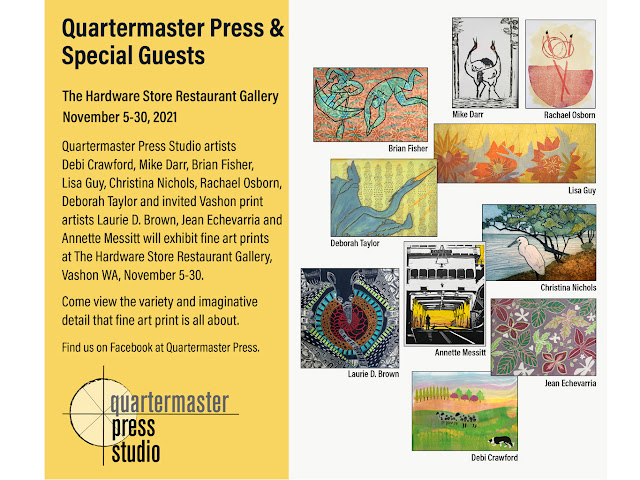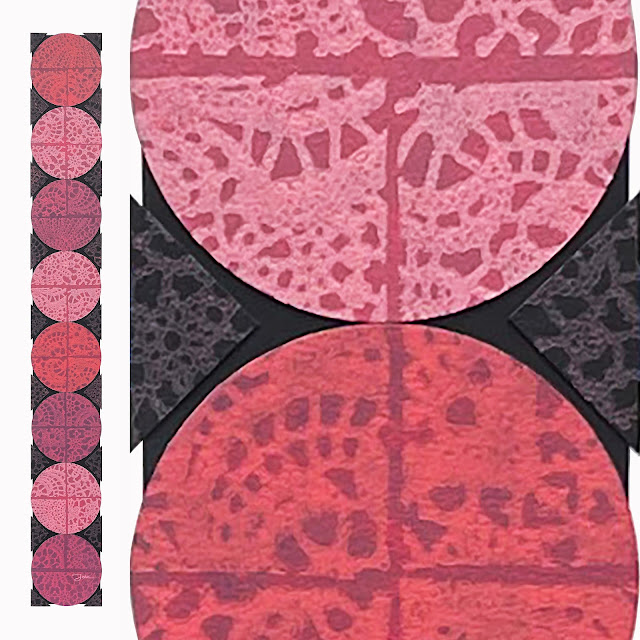Cygnus
Horizon and sky are the most memorable characteristics
of the midwestern landscape I was born to. I suspect the knowledge my father shared with me and with my siblings,
lying on our backs in the buffalo grass of our grandparent’s Kansas farm and
gazing up through night binoculars, predated his studies at Denver University,
Colorado and Hays College, Kansas in the 1950’s and 60’s. Wherever, whenever, his knowledge came
from, his passion for stargazing is memorable and has inspired my Rust Monotype
“Cygnus”.
My Father, Dale Fisher, was born April 20, 1913 into
a world of kerosene and candles, well before manmade light and the Rural Electrification
Act of 1936 dimmed his world to the heavens. My dad’s perspective about sky included a
classical explanation of the constellations, lay observation of the stars/planets
and an avid curiosity about the physical world that caused him to call his family outside to witness sputnik
traversing the night sky.
His is the voice that conjured the stories of Ursas
major and minor, the Pleiades, Andromeda and Cygnus into my consciousness for
the first time.
Cygnus is one of the most recognizable and
brightest constellations in the Northern sky from June to December. Look up. Of course those are heavenly wings
spread; a beak and tail! Yes, I
see a swan!
According to Ovid, Cygnus was a close friend,
maybe lover, of Phaethon. Phaethon
died (by his grandfather Zeus’s lightening bolt) when he recklessly scorched
the earth while driving the family’s (Sun) chariot. Poor Cygnus’s grief for his
beloved transformed him into a swan fearful of fire from heaven and so he chose
to live in damp marshes, lakes and rivers.
“As he mourned, his voice became thin and shrill,
and white feathers hid his hair. His neck grew long, stretching out from his
breast, his fingers reddened and a membrane joined them together. Wings clothed
his sides, and a blunt beak fastened on his mouth. Cygnus became a new kind of
bird: but he put no trust in the skies, or in Zeus, for he remembered how that
god had unjustly hurled his flaming bolt.
Instead, Cygnus looked for marshes and broad
lakes, and in his hatred of flames chose to inhabit the river that would quench
fire. Ovid, Metamorphoses II.
My “Cygnus” Print, (approximately 36 x 36 in.) is
a Monotype rusted to vintage linen and mounted on a coped wooden panel. “Cygnus” represents transformation, a
change in form that embodies becoming who we already are.




Comments
Post a Comment